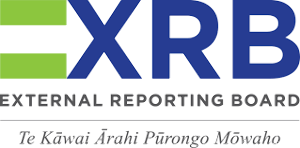
by Andrea Malcolm

Under the Financial Services (Climate Related Disclosures) Amendment Act insurers and fund managers with more than $1b in assets under management, must disclose their climate-related risk and opportunities in annual climate statements. The greenhouse gas emissions portion of climate statements must be independently assured.
Assurers will have a critical role to play in protecting the public interest so customers and investors can have trust and confidence in climate change disclosure reporting.
The Act doesn’t outline who qualifies to do assurance and MBIE is still working out whether assurers will have to be licensed and whether the assurance mandate should be extended to all disclosures beyond GHG emissions.
The climate reporting standards issued last December by the XRB are yet to be applied and international assurance requirements for sustainability (including climate reporting) are still in development.
The XRB states it is acutely aware of the rapidly changing environment and acknowledges that the possible scope of mandatory assurance in New Zealand may extend beyond GHG disclosures to a full climate statement. Also that an assurance licensing and oversight regime is still being developed.
Its solution to this ‘environment of unknowns’ is to create a temporary standard that is narrow in scope and applies only to the current mandatory assurance engagement requirements of the Act.
XRB received 18 submissions ranging from engineering and carbon certifiers to accountants, the big four auditors, the Office of the Auditor General, and the Financial Services Council (FSC).
Given the time pressures the XRB has proposed deactivating the Professional Ethical Standards (PES) requirements applied to financial auditors.
In their feedback the FSC and auditors have pushed back saying building trust is paramount with climate change reporting. KPMG says deactivation could undermine the credibility of assurance reports for ESG. EY is concerned that new entrant assurers who are not financial auditors, won’t be required to operate at the same financial auditor standard, opening the possibility of a two tier system of assurers developing.
The proposed draft also puts forward two different assurance standards; ISAE 3410 which is the international standard on assurance engagement on greenhouse gas statements or the ISO greenhouse gases part 3. A proposed standard that is meant to bridge the difference isn’t expected to be available until the end of 2024, while the first climate change statements will be due in October 2024.
Concerns were raised by the FSC and accounting firms that ISO is not available to be read by the public (it can be bought for $800) and also that the two standards are not fit for purpose and have asked for a transition plan to be defined.
Taking all feedback into consideration the XRB says key topics to consider in more detail are a transition plan for the temporary standard, whether the proposed quality management and ethical requirements are sufficient, more guidance support, how assurance findings should be communicated and the use of experts and reliance on other assurance practitioners. The aim is to publish the interim standard in July.
| « Mindful Money endorses 10 more funds | Mainstreaming impact investment project underway » |
Special Offers
No comments yet
Sign In to add your comment

© Copyright 1997-2026 Tarawera Publishing Ltd. All Rights Reserved